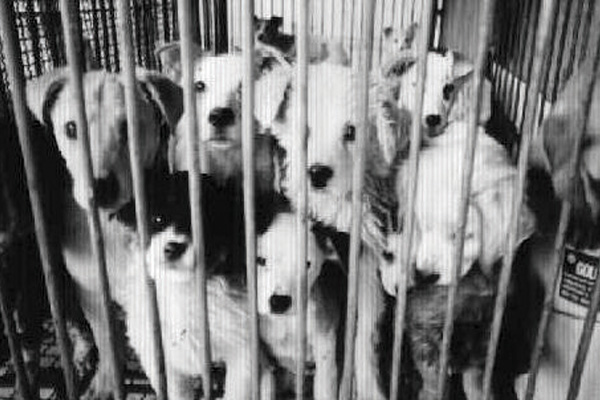New Grant Dangles $75 Million for Nonsurgical Pet Sterilization Research
by Kris Garvey | Nov 01, 2008

Dr. Gary Michelson, a spine surgeon turned medical inventor, has more than 900 issued or pending patents on devices and instruments that have enhanced complicated back and neck surgery. Now, the 60-year-old billionaire is devoting his life and his fortune to homeless pets. On October 16th at the SPAY/USA Conference in Chicago, his Found Animals Foundation announced The Michelson Prize in Reproductive Biology.
The Michelson Prize is designed to encourage researchers from a wide variety of scientific fields to take on the challenge of non-surgical pet sterilization. $50 million in grant funding will be available for projects that show promising research in pursuit of a safe, effective, and practical nonsurgical sterilant for use in cats and dogs. A $25 million prize will go to the first innovative entity that produces a sterilizing product that is: a single dose and is non-surgical; safe and effective in male and female cats and dogs; suitable for administration in a field setting, either orally or by injection; a viable pathway to regulatory approval; requires reasonable manufacturing process and cost.
With millions of pets killed every year in the United States because of pet overpopulation, a simple sterilization procedure could prevent unwanted litters of dogs and cats and save lives. Since pets reproduce exponentially, a single female dog or cat and her offspring can produce thousands of puppies or kittens in only a few years.
Sterilization is the most effective way to end the killing of homeless pets. In fact, it has been shown that in most cities, populations of cats and dogs stabilize when 70% of pets are spayed or neutered. As Dr. Michelson has said, “We are killing millions of pets annually in the U.S. for the simple lack of a home, and sterilization programs are the only viable solution.”
According to Found Animals Executive Director Aimee Gilbreath, “Surgical spay/neuter procedures are just too expensive and inconvenient for many pet owners—we need a better solution.” A Stanford MBA, Gilbreath is now applying her business skills to the creation and development of sustainable business models within animal welfare after a corporate career in R&D at Motorola and as a Principal at Boston Consulting Group.
With an enticing financial incentive, Michelson, Gilbreath and all animal lovers have hope that the best and brightest scientific minds will rise to the challenge and develop an innovative product that will relieve the suffering of so many millions of pets.
